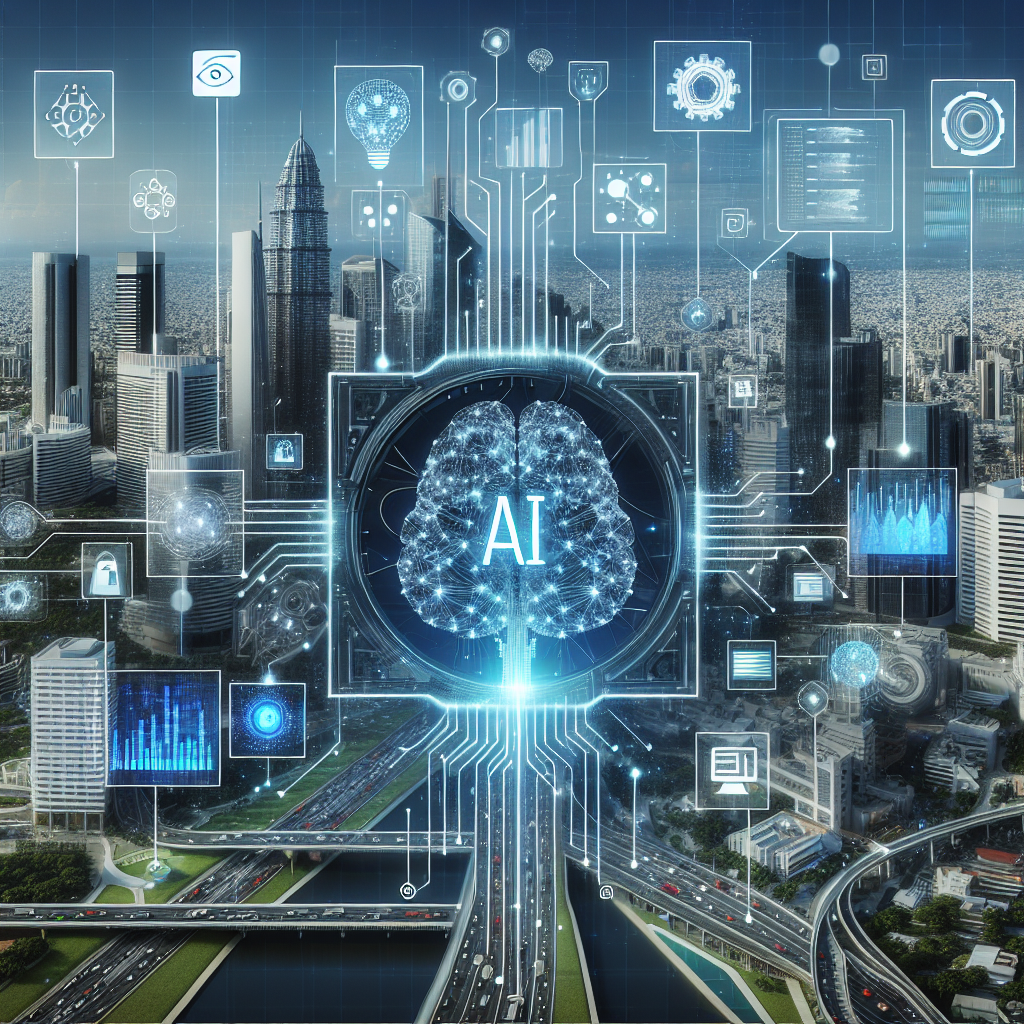In recent years, the concept of smart cities has gained significant traction as urban areas around the world look for ways to improve efficiency, sustainability, and overall quality of life for residents. One of the key drivers behind the development of smart cities is the integration of artificial intelligence (AI) technology. Leveraging AI integration for smart cities has the potential to revolutionize how cities are managed and operated, leading to more sustainable and livable urban environments.
AI technology encompasses a wide range of capabilities, including machine learning, natural language processing, computer vision, and robotics. When integrated into smart city infrastructure, AI can help cities collect and analyze vast amounts of data in real-time, enabling more informed decision-making and proactive management of resources. From traffic management and public safety to waste management and energy efficiency, AI can be used to optimize various aspects of city operations and services.
One of the key benefits of leveraging AI integration for smart cities is the ability to automate routine tasks and processes, freeing up human resources to focus on more strategic and creative endeavors. For example, AI-powered algorithms can analyze traffic patterns and adjust signal timings to reduce congestion and improve traffic flow. Similarly, AI can be used to predict and prevent crime by analyzing historical crime data and identifying patterns that may indicate potential hotspots.
Another advantage of AI integration in smart cities is the ability to improve resource efficiency and sustainability. By analyzing data on energy consumption, water usage, waste generation, and other resource flows, AI can help cities optimize resource allocation and reduce waste. For example, AI-powered sensors can monitor water usage in real-time and detect leaks or anomalies, enabling prompt repairs and conservation efforts. Similarly, AI can help optimize waste collection routes to reduce fuel consumption and emissions.
Furthermore, AI integration can enhance the delivery of public services and improve the overall quality of life for residents. For example, AI-powered chatbots can provide personalized assistance and information to residents on a wide range of topics, from public transportation schedules to local events. AI can also be used to analyze social media and other online data sources to gather feedback and insights from residents, enabling more responsive and citizen-centric governance.
However, despite the many benefits of leveraging AI integration for smart cities, there are also challenges and concerns that need to be addressed. One of the main challenges is the need for robust data governance and privacy protections to ensure that data collected and analyzed by AI systems is secure and used responsibly. Cities must also consider issues of equity and accessibility to ensure that AI technologies benefit all residents, not just those with the means to access or interact with them.
In addition, there are concerns about the potential for AI to exacerbate existing inequalities and biases in society. AI algorithms can inadvertently perpetuate discrimination or reinforce stereotypes if not carefully designed and monitored. Cities must therefore be vigilant in ensuring that AI systems are transparent, accountable, and fair in their decision-making processes.
Despite these challenges, the potential benefits of leveraging AI integration for smart cities are significant. By harnessing the power of AI technology, cities can improve efficiency, sustainability, and quality of life for residents, making urban areas more livable and resilient in the face of growing challenges such as climate change, population growth, and resource scarcity.
FAQs:
1. What is AI integration in smart cities?
AI integration in smart cities refers to the incorporation of artificial intelligence technology into city infrastructure and services to enhance efficiency, sustainability, and overall quality of life for residents. AI technology can be used to collect and analyze data in real-time, automate routine tasks, optimize resource allocation, and improve the delivery of public services.
2. How can AI help improve traffic management in smart cities?
AI can help improve traffic management in smart cities by analyzing traffic patterns, predicting congestion hotspots, and adjusting signal timings to optimize traffic flow. AI-powered algorithms can also be used to monitor and control traffic in real-time, reducing delays, emissions, and fuel consumption.
3. What are some examples of AI applications in smart cities?
Some examples of AI applications in smart cities include smart energy management systems, intelligent waste management solutions, predictive maintenance for infrastructure, autonomous public transportation systems, and AI-powered chatbots for citizen engagement and assistance.
4. What are the challenges of leveraging AI integration for smart cities?
Some of the challenges of leveraging AI integration for smart cities include data governance and privacy concerns, issues of equity and accessibility, potential biases and discrimination in AI algorithms, and the need for transparency and accountability in decision-making processes.
5. How can cities address concerns about the ethical use of AI technology?
Cities can address concerns about the ethical use of AI technology by implementing robust data governance and privacy protections, conducting regular audits and evaluations of AI systems, promoting transparency and accountability in decision-making processes, and engaging with stakeholders to gather feedback and address concerns.

